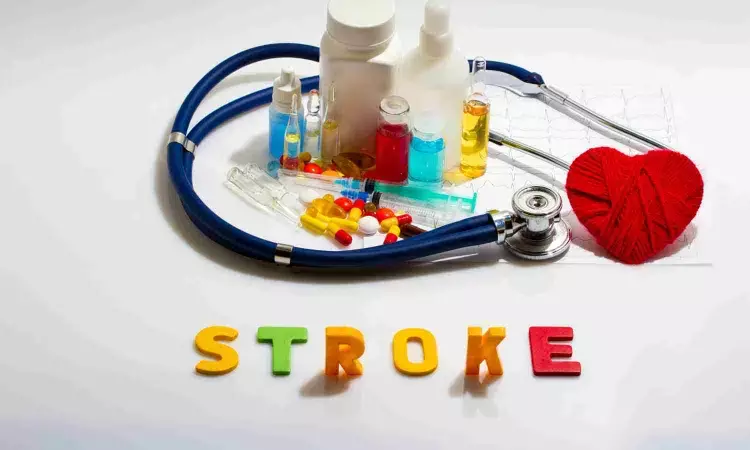- Home
- Medical news & Guidelines
- Anesthesiology
- Cardiology and CTVS
- Critical Care
- Dentistry
- Dermatology
- Diabetes and Endocrinology
- ENT
- Gastroenterology
- Medicine
- Nephrology
- Neurology
- Obstretics-Gynaecology
- Oncology
- Ophthalmology
- Orthopaedics
- Pediatrics-Neonatology
- Psychiatry
- Pulmonology
- Radiology
- Surgery
- Urology
- Laboratory Medicine
- Diet
- Nursing
- Paramedical
- Physiotherapy
- Health news
- Fact Check
- Bone Health Fact Check
- Brain Health Fact Check
- Cancer Related Fact Check
- Child Care Fact Check
- Dental and oral health fact check
- Diabetes and metabolic health fact check
- Diet and Nutrition Fact Check
- Eye and ENT Care Fact Check
- Fitness fact check
- Gut health fact check
- Heart health fact check
- Kidney health fact check
- Medical education fact check
- Men's health fact check
- Respiratory fact check
- Skin and hair care fact check
- Vaccine and Immunization fact check
- Women's health fact check
- AYUSH
- State News
- Andaman and Nicobar Islands
- Andhra Pradesh
- Arunachal Pradesh
- Assam
- Bihar
- Chandigarh
- Chattisgarh
- Dadra and Nagar Haveli
- Daman and Diu
- Delhi
- Goa
- Gujarat
- Haryana
- Himachal Pradesh
- Jammu & Kashmir
- Jharkhand
- Karnataka
- Kerala
- Ladakh
- Lakshadweep
- Madhya Pradesh
- Maharashtra
- Manipur
- Meghalaya
- Mizoram
- Nagaland
- Odisha
- Puducherry
- Punjab
- Rajasthan
- Sikkim
- Tamil Nadu
- Telangana
- Tripura
- Uttar Pradesh
- Uttrakhand
- West Bengal
- Medical Education
- Industry
New evidence emerges for use of anti-inflammatory therapy for prevention of recurrent vascular events in stroke

In the international CONVINCE trial, presented today at the European Stroke Organisation Conference (ESOC) 2024, anti-inflammatory treatment with long-term colchicine did not reduce rates of recurrent stroke and cardiovascular events in patients with non-cardioembolic stroke in the primary intention-to-treat analysis. Reduced event rates in secondary analyses, and in the subgroup of patients with coronary artery disease, support trials which reported benefit in coronary disease and may inform future secondary prevention trials in stroke.
Inflammation plays an important role in the pathophysiology of atherosclerosis. Over the past years, several trials have shown that anti-inflammatory treatment reduces recurrent vascular events in coronary artery disease, while no such evidence is available for stroke. Colchicine is an established drug to reduce inflammatory response and widely available at low-cost.
CONVINCE was an international, randomised, open-label trial designed to test whether long- term colchicine (0.5 mg/day) in addition to standard of care reduces recurrent stroke or cardiovascular events in patients with non-cardioembolic ischaemic stroke or high-risk transient ischaemic attack (TIA). The primary endpoint was a composite of first recurrent ischaemic stroke, myocardial infarction, cardiac arrest or hospitalisation for unstable angina. Over period of almost 6 years and despite constraint imposed by the COVID-19 pandemic, 3,154 patients were randomised and followed for a median of 34 months.
In the intention-to-treat analysis, the primary endpoint occurred in 153 patients randomised to colchicine (9.8%) compared with 185 on usual care (11.8%), which translated into incidence rates of 3.32 versus 3.92/100 person-years. The adjusted hazard ratio was 0.84 (95% confidence interval 0.68-1.05, p=0.12). Reduced levels of CRP in the colchicine group showed the anti-inflammatory effect of treatment with colchicine. In the pre-specified on- treatment analysis, as well as in the subgroup of patients with a history of coronary artery disease, significantly reduced rates of recurrent stroke or cardiovascular events were observed.
Professor Peter Kelly, the principal investigator of CONVINCE, commented, “Although the primary analysis was neutral, the signals of benefit of colchicine on secondary analyses are in line with findings from previous trials and indicate the potential of colchicine in prevention after stroke. In CONVINCE, the COVID pandemic reduced the planned follow-up time, which led to under-powering for the primary analysis by 8%. Further trials are needed in all stroke subtypes, but with particular focus on patients with objective evidence of atherosclerosis.”
In conclusion, although the primary endpoint was neutral, the results CONVINCE support the hypothesis that long-term anti-inflammatory therapy with colchicine may reduce recurrent stroke and cardiovascular events specifically in stroke patients with atherosclerosis.
Reference:
Kelly P, Weimar C, Lemmens R, et al. COLCHICINE FOR PREVENTION OF VASCULAR INFLAMMATION IN NON-CARDIOEMBOLIC STROKE (CONVINCE). A RANDOMISED CONTROLLED TRIAL. Presented at the European Stroke Organisation Conference; 15 May 2024; Basel, Switzerland.
Dr Kamal Kant Kohli-MBBS, DTCD- a chest specialist with more than 30 years of practice and a flair for writing clinical articles, Dr Kamal Kant Kohli joined Medical Dialogues as a Chief Editor of Medical News. Besides writing articles, as an editor, he proofreads and verifies all the medical content published on Medical Dialogues including those coming from journals, studies,medical conferences,guidelines etc. Email: drkohli@medicaldialogues.in. Contact no. 011-43720751


